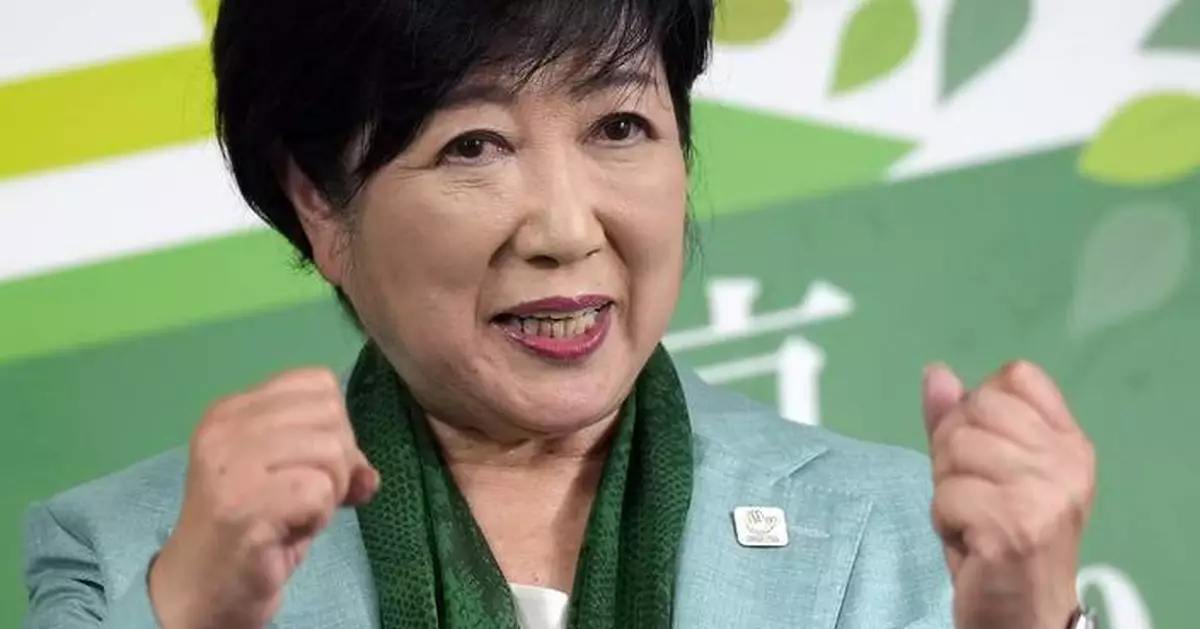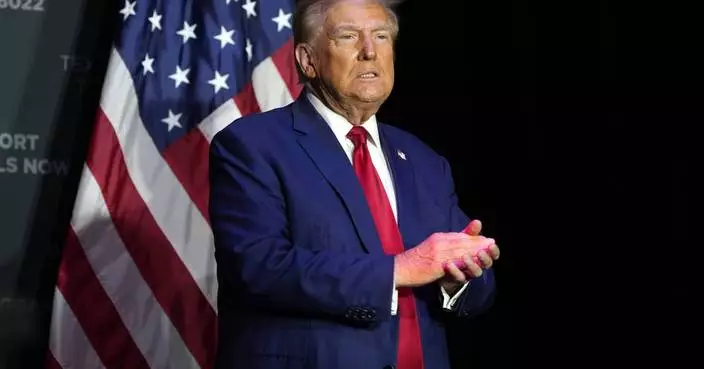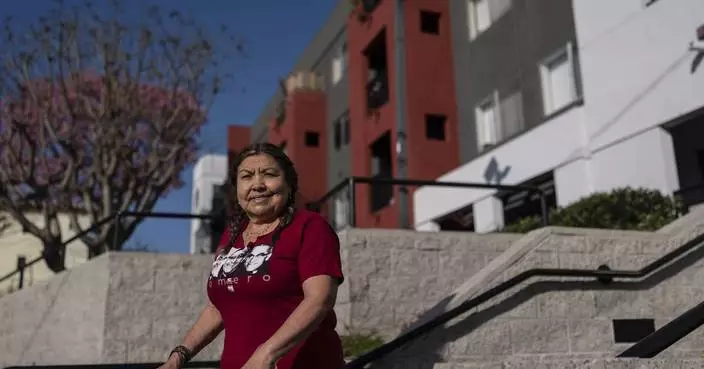TOKYO (AP) — Eight years ago, Yuriko Koike became the first woman to lead Tokyo, beating her male predecessor. She won her third term as governor Sunday, and one of her closest rivals was a woman.
Multiple women competing for a top political office is still rare in Japan, which has a terrible global gender-equality ranking, but Koike’s win highlights a gradual rise in powerful female officials and a society more open to gender balance in politics. That said, even if a woman eventually becomes prime minister, politics here is still overwhelmingly dominated by men, and experts see a huge effort needed for equal representation.
“There are growing expectations for women to play a greater role in politics,” said parliamentarian Chinami Nishimura, a senior official with the main opposition Constitutional Democratic Party of Japan. “In politics or parliament, which are still largely considered men’s work, it is extremely meaningful for women to show their presence and have our voices heard.”
Nishimura, who also heads the opposition party’s gender-equality promotion team, hopes to have women make up 30% of her party's candidates in the next national election. Prime Minister Fumio Kishida’s conservative Liberal Democratic Party last year vowed to achieve 30% female representation within 10 years and is working to recruit more female candidates.
Finding aspiring female candidates, however, isn't easy. Women in Japan are still often expected to be in charge of childrearing, elderly care and other family responsibilities.
National parliamentarians are also expected to regularly travel between Tokyo and their home constituencies, which makes it especially difficult for female lawmakers trying to balance a career and family. Nishimura says former female colleagues have quit national politics and returned to local assemblies because of such demands.
Nishimura began her political career in her hometown Niigata's prefectural assembly in 1999, the first woman to serve there in decades. The 53-member assembly now has five women.
A growing number of women are now seeking political careers, but they are still in the minority, especially in national politics where electoral decisions are largely determined by closed-door, male-dominated party politics, and outspoken women tend to be targets.
One of Koike’s top rivals was a woman, Renho, a veteran former parliamentarian who goes by one name and who finished third. Renho told reporters last month that she often saw headlines about the Tokyo governor's race that trumpeted “A battle of dragon women.”
“Would you use that kind of expression to describe a competition between male candidates?” she asked.
Koike, a stylish, media-savvy former television newscaster, was first elected to parliament in 1992 at age 40. She served in several key Cabinet posts, including as environment minister and defense chief, for the long-ruling Liberal Democratic Party, before becoming Tokyo governor in 2016.
Renho, known for asking sharp questions in parliament, was born to a Japanese mother and Taiwanese father. A former model and newscaster, she was elected to parliament in 2004 and served as administrative reform minister in the government led by the now-defunct Democratic Party of Japan.
Attacks on Renho's aggressive image were a clear example of gender bias in a society that expects female candidates to be “motherly or cute," said Chiyako Sato, a Mainichi Shimbun editorial writer and a commentator on politics.
Because of a small female presence in politics, powerful women tend to get excessive attention. Their presence in Tokyo governor’s election “conveyed a positive message that women can become political leaders, but a large amount of the noise about them also reflected Japan’s sad reality,” said Mari Miura, a Sophia University professor and expert on gender and politics.
For instance, a survey of national and local lawmakers in 2022 conducted by a civil group showed one-third of about 100 female respondents faced sexual harassment during election campaigns or at work.
Earlier this year, a gaffe-prone former prime minister, Taro Aso, was forced to apologize for describing Foreign Minister Yoko Kamikawa, a woman, as capable but not beautiful.
Women make up about 30% of the Tokyo assembly, and their presence in town assemblies in urban areas is also growing. On average, female representation in more than 1,740 Japanese local assemblies doubled to 14.5% in 2021 from 20 years ago. There are growing calls for more female voices in politics.
But in rural areas, where more traditional gender roles are more usual, 226, or 13% of the total, had “zero women” assemblies last year, according to the Gender Equality Bureau of the Cabinet Office.
In parliament, where conservative Liberal Democrats have been in power almost uninterruptedly since the end of World War II, female representation in the lower house is 10.3%, putting Japan 163rd among 190 countries, according to a report by the Geneva-based Inter-Parliamentary Union in April.
In 1946, the figure wasn't much different — only 8.4% — when a first group of 39 women were elected to parliament, according to the Gender Equality Bureau.
“There have been changes starting from regional politics, but the pace is too slow," Sato said, proposing a mandatory quota for women.
One woman in a Cabinet of about 20 ministers was standard in the 1990s. Lately, two is usual. Maintaining an increased number of female ministers is a challenge because of a shortage of women with seniority. Women are also given limited leadership chances, which delays gender equality laws and policies.
“Because of the absence of leadership change, the metabolism is bad in Japan. Because of that, politics does not change despite changes in the public view,” Miura said.
Koike became the first female candidate to run in the LDP leadership race in 2008. Two others, Sanae Takaichi and Seiko Noda, ran in 2021 against Kishida.
Most recently, Kamikawa, the foreign minister, is seen as having a chance, because the LDP wants change as it struggles with dwindling support ratings and corruption scandals.
The winner, determined by a vote among LDP lawmakers and party members, automatically becomes prime minister because of the LDP’s dominance in parliament.
Under the Japanese system, however, having a female prime minister doesn't necessarily mean progress in gender equality because of overwhelming male political influence. But it could be a crucial step forward, even if symbolic, said Sato, the political commentator.
“Having role models is very important ... to show gender equality and that women can also aim for a top job," Sato said. “Women in politics are no longer expected to be wallflowers.”
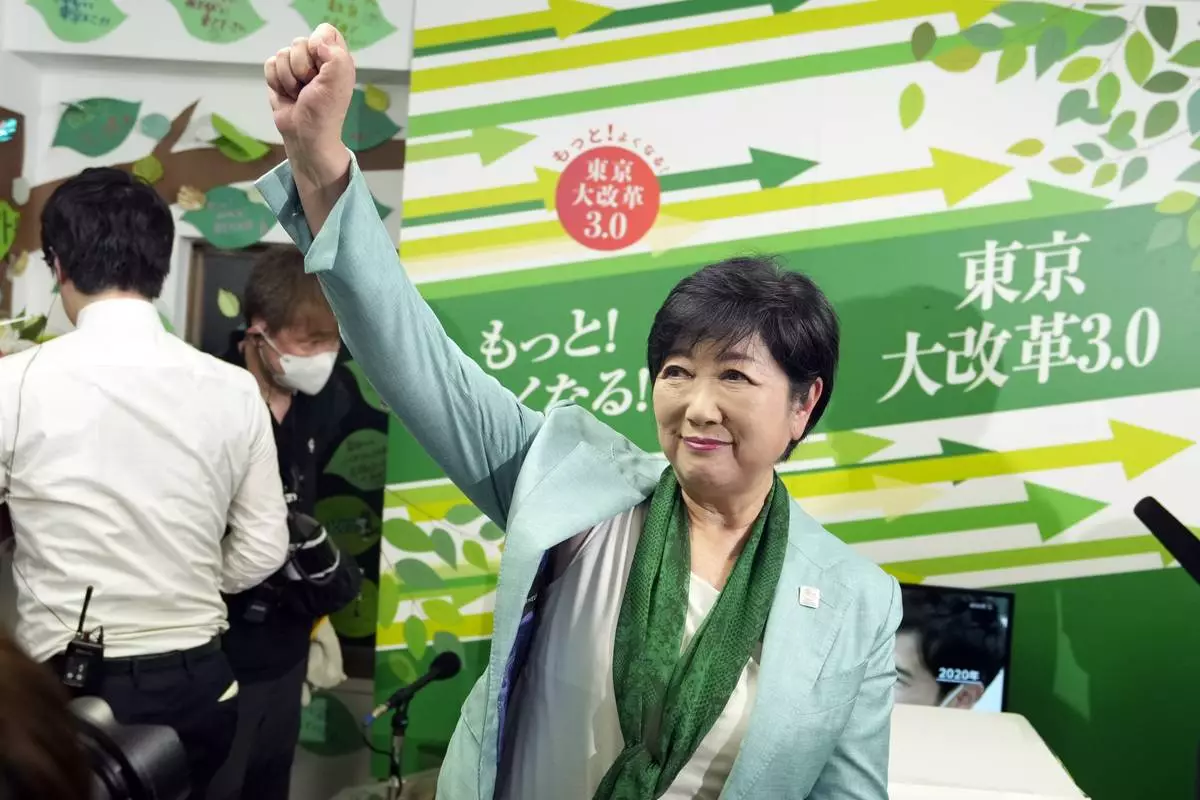
FILE - Incumbent Tokyo Gov. Yuriko Koike celebrates after she was elected for Tokyo's gubernatorial election in Tokyo, Sunday, July 7, 2024. Multiple women competing for a top political office is still rare in Japan, but Koike’s win highlights a gradual rise in powerful female officials and a society more open to gender balance in politics. That said, even if a woman eventually becomes prime minister, politics here is still overwhelmingly dominated by men, and experts see a huge effort needed for equal representation. (AP Photo/Hiro Komae, File)
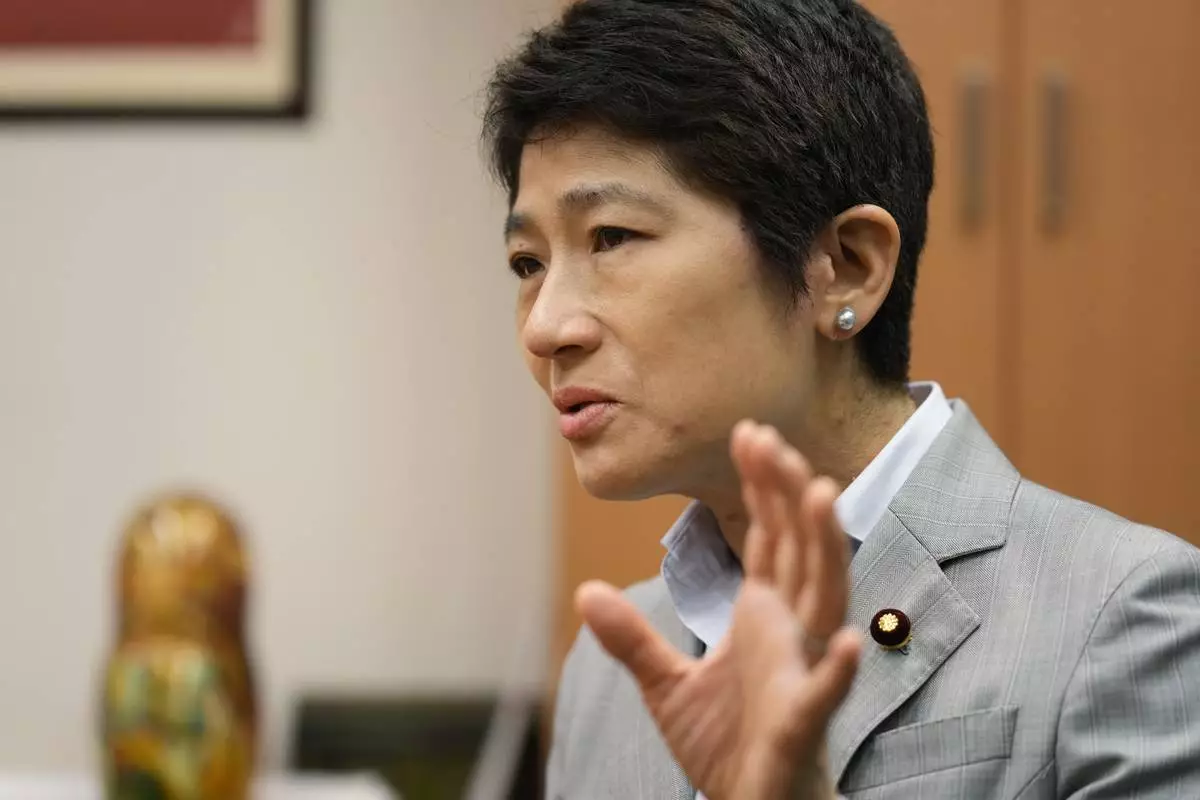
Chinami Nishimura, a member of the main opposition Constitutional Democratic Party of Japan and a lower house lawmaker, speaks during an interview with The Associated Press in Tokyo, Monday, July 1, 2024. Nishimura, who heads the opposition party’s gender-equality promotion team, hopes to have women comprise 30% of her party's candidates in the next national election. (AP Photo/Hiro Komae)
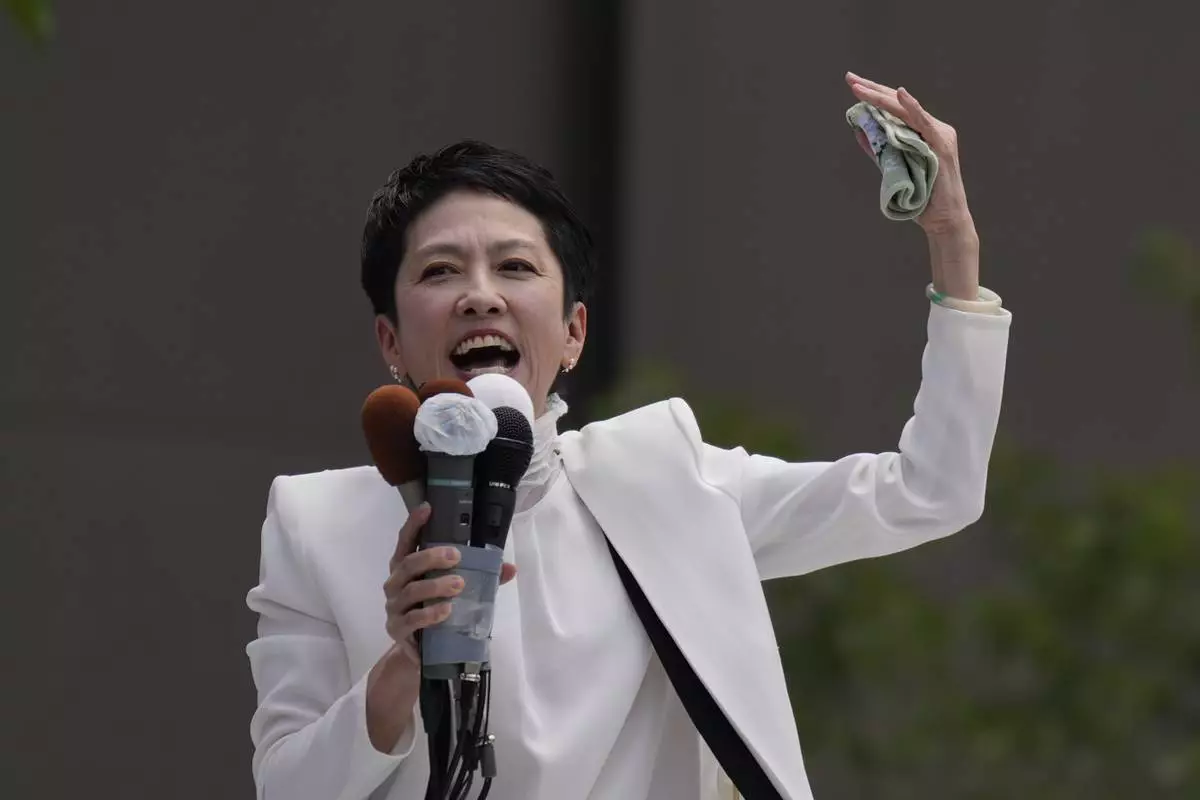
Renho, a Tokyo gubernatorial election candidate and a member of the House of Councilors, speaks during her campaign in Tokyo, as electoral activities for the Tokyo's gubernatorial election are officially allowed Thursday, June 20, 2024. Renho told reporters in June that she often saw headlines about the Tokyo governor's race that trumpeted "A battle of dragon women". "Would you use that kind of expression to describe a competition between male candidates?" she asked. (AP Photo/Hiro Komae)
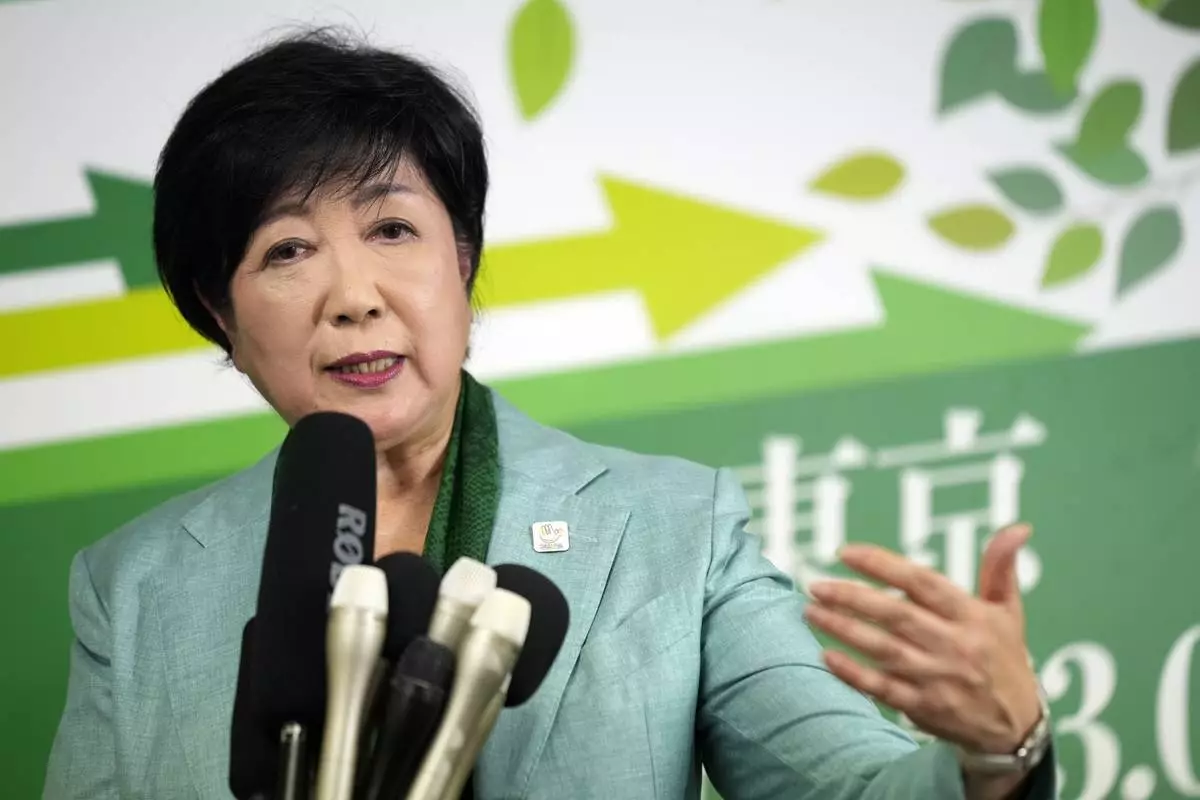
FILE - Incumbent Tokyo Gov. Yuriko Koike delivers a speech after she was elected for Tokyo's gubernatorial election in Tokyo, Sunday, July 7, 2024. Multiple women competing for a top political office is still rare in Japan, but Koike’s win highlights a gradual rise in powerful female officials and a society more open to gender balance in politics. That said, even if a woman eventually becomes prime minister, politics here is still overwhelmingly dominated by men, and experts see a huge effort needed for equal representation. (AP Photo/Hiro Komae, File)
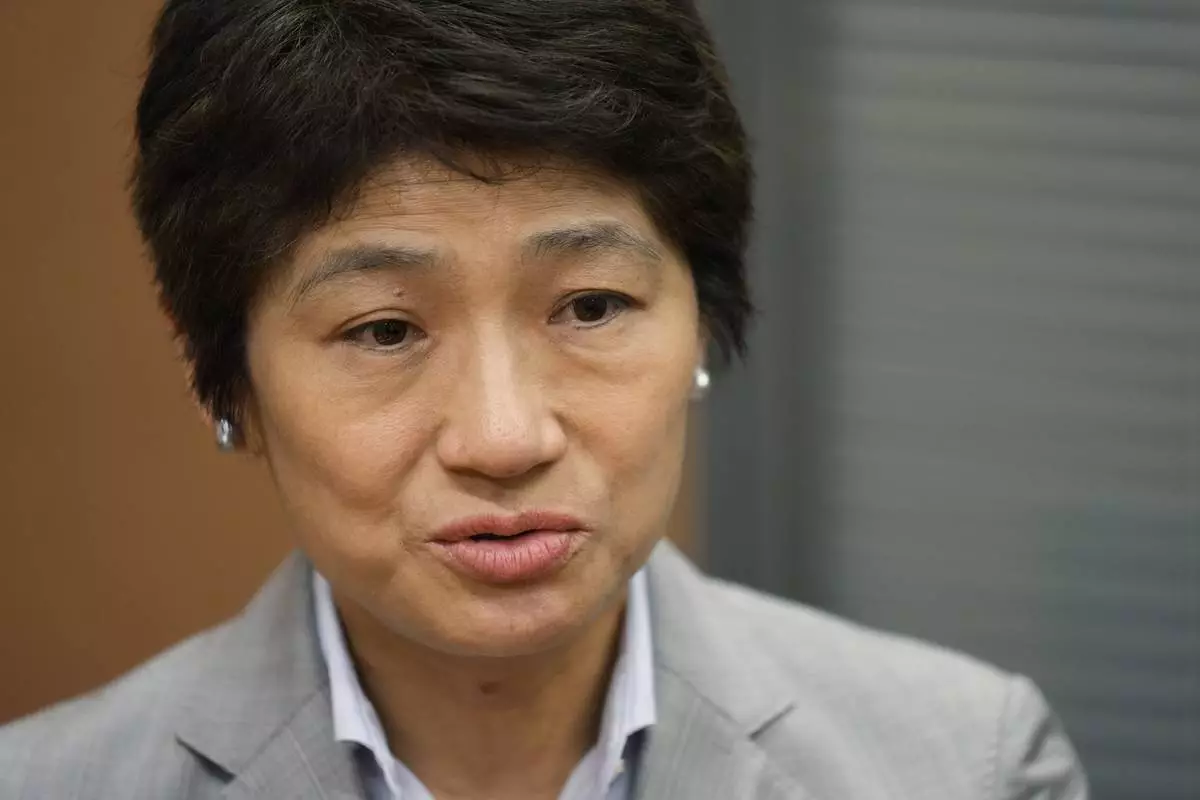
Chinami Nishimura, a member of the main opposition Constitutional Democratic Party of Japan and a lower house lawmaker, speaks during an interview with The Associated Press in Tokyo, Monday, July 1, 2024. Nishimura, who heads the opposition party’s gender-equality promotion team, hopes to have women comprise 30% of her party's candidates in the next national election. (AP Photo/Hiro Komae)
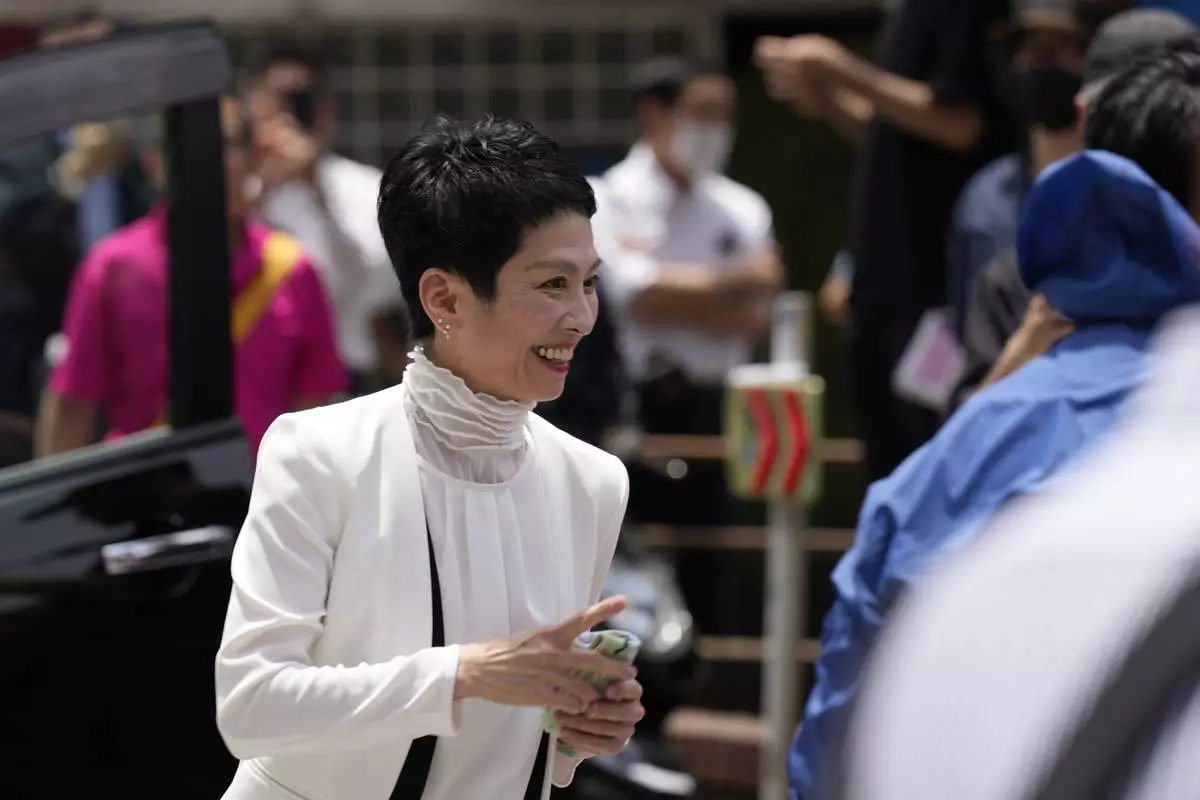
Renho, a Tokyo gubernatorial election candidate and a member of the House of Councilors, shows up for her Tokyo gubernatorial election campaign in Tokyo, Thursday, June 20, 2024. Renho told reporters in June that she often saw headlines about the Tokyo governor's race that trumpeted "A battle of dragon women". "Would you use that kind of expression to describe a competition between male candidates?" she asked. (AP Photo/Hiro Komae)
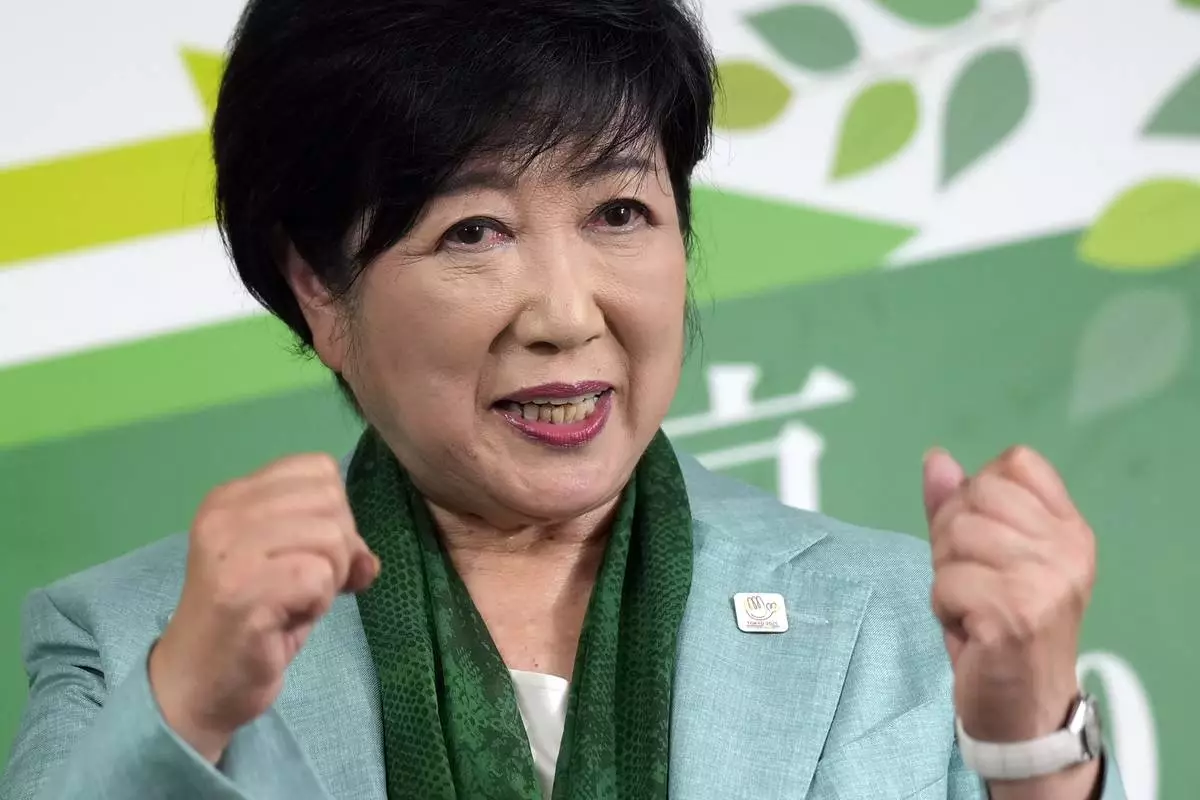
FILE - Incumbent Tokyo Gov. Yuriko Koike celebrates after she was elected for Tokyo's gubernatorial election in Tokyo, Sunday, July 7, 2024. Multiple women competing for a top political office is still rare in Japan, but Koike’s win highlights a gradual rise in powerful female officials and a society more open to gender balance in politics. That said, even if a woman eventually becomes prime minister, politics here is still overwhelmingly dominated by men, and experts see a huge effort needed for equal representation. (AP Photo/Hiro Komae, File)


